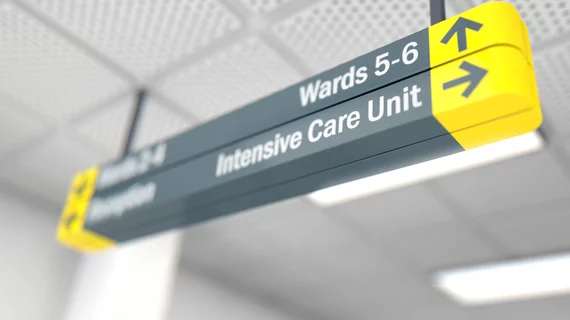Perfusion CT can accurately diagnose brain death in patients with severe traumatic brain injury and potentially save the lives of others in the process.
That’s what researchers reported Jan. 29 in an American Journal of Roentgenology study. They found that perfusion CT performed within the first 48 hours after admission was highly accurate in classifying early in-hospital mortality. Use of the imaging protocol could be beneficial in helping families with their treatment decisions and organ donation options.
“Patients' families and physicians rely on prognostic information to decide whether to pursue life support,” Jai Jai Shiva Shankar, MD, with Dalhousie University in Halifax, Nova Scotia, Canada, and colleagues wrote. “Prognostic information may affect decisions about organ donation because brain death is the principal criterion. Thus, delays in diagnosing brain death negatively affect the precious opportunity for organ donation,” they added.
Unenhanced CT is the most commonly used modality in TBI patients. Although it can accurately diagnose skull fractures, intracranial bleeding and brain contusions, among other conditions, it has “several” limitations when it comes to assessing brain death. Severe TBI is a clinical emergency, and many patients are immediately placed on life support when they arrive at the hospital. But due to modality limitations and scant research on CT perfusion, these patients are often treated without ever receiving a clear prognosis.
To close this knowledge gap, the researchers performed a prospective pilot study on 19 patients with severe TBI. Each underwent perfusion CT as their first imaging workup upon hospital admission, and had a mean hospital stay longer than 1 month.
The results showed that perfusion CT was safe and effective. It achieved a 75% sensitivity for classifying brain death, with 100% specificity. And the approach showed a 100% positive-predictive value for diagnosing clinically confirmed, in-hospital mortality within 48 hours of admission.
Not only can utilizing this CT protocol help families make more informed decisions for their loved ones, but it could also optimize the utilization of healthcare resources. The authors noted treating patients with severe TBI is “extremely resource intensive.”
“Our pilot study confirmed the feasibility and safety of performing admission perfusion CT of patients with severe TBI,” the authors concluded. “Admission PCT findings can aid in correct classification of early in-hospital mortality in the first 48 hours of hospital admission.”

